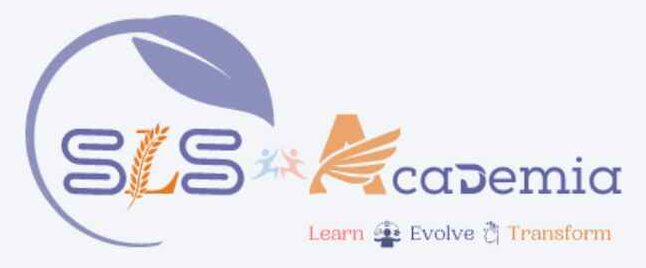Important Phrases and Their Uses in Public Speaking and Writing
What is a Phrase?
A phrase is a group of words that forms a part of a sentence and does not contain a subject and a verb. Phrases can be used to add more detail or specific information to a sentence, and to make writing or speech more concise and expressive.
Types of Phrases
There are several types of phrases, including:
Noun phrases: A group of words that functions as a noun, such as “the red car” or “my best friend”
Verb phrases: A group of words that functions as a verb, such as “is running” or “has been studying”
Adjective phrases: A group of words that modifies a noun or pronoun, such as “very happy” or “extremely excited”
Adverb phrases: A group of words that modifies a verb, adjective, or adverb, such as “quickly and efficiently” or “in the morning”
Uses of Phrases in speaking and writing
Phrases can be used in different ways in writing and speech, such as:
- To provide more detail or specific information: A phrase can be used to add more information to a sentence, such as “The boy with the red hat”
- To make writing or speech more concise: A phrase can be used to express multiple ideas in one word, such as “dog-lover”
- To make writing or speech more expressive: A phrase can be used to create a certain tone or mood, such as “the peaceful silence”
Important Phrases
Here is a list of commonly used phrases in English language:
1) “In conclusion” – This phrase is used to signal the end of a speech or presentation, and to summarize the main points that have been made.
2) “On the other hand” – This phrase is used to introduce a contrasting point or viewpoint.
3) “To begin with” – This phrase is used to introduce the first point or topic in a speech or presentation.
4) “Moreover” – This phrase is used to introduce additional information or to show that something is an additional reason for a previously mentioned point.
5) “To sum up” – This phrase is used to briefly summarize the main points of a speech or presentation.
6) “In light of this” – This phrase is used to introduce a point that is in relation to previously mentioned information.
7) “In addition” – This phrase is used to introduce additional information or to show that something is an additional reason for a previously mentioned point
8) “Therefore” – This phrase is used to introduce a conclusion or a logical result of the previously mentioned information.
9) “However” – This phrase is used to indicate a contrast or a different point of view.
10) “As a result” – This phrase is used to indicate a consequence of a previously mentioned action or event.
11) “In other words” – This phrase is used to explain something in a different way
12) “For example” -This phrase is used to provide an example to support a point
13) “To put it simply” – This phrase is used to explain something in a simpler way
14) “In essence” -This phrase is used to explain the core or most important idea
15) “On the contrary” -This phrase is used to indicate a contrasting viewpoint or information
16) “In short” -This phrase is used to summarize a long or complex idea
17) “To be specific” -This phrase is used to provide more detailed or specific information
18) “In particular” -This phrase is used to emphasize a specific aspect of a point
19) “To clarify” -This phrase is used to make something more understandable
20) “In general” -This phrase is used to indicate that a statement is true most of the time or in most cases.
21) “To start with” -This phrase is used to introduce the first point or topic in a speech or presentation
22) “In contrast” -This phrase is used to compare and contrast two or more ideas
23) “To illustrate” -This phrase is used to provide an example or a story to make a point more clear
24) “In summary” -This phrase is used to briefly summarize the main points of a speech or presentation
25) “To that end” -This phrase is used to indicate the purpose or goal of a statement or action
26) “Not to mention” -This phrase is used to introduce additional information or reasons
27) “In other words” -This phrase is used to explain something in a different way
28) “To put it differently” -This phrase is used to explain something in a different way or from another perspective
29) “In any case” -This phrase is used to indicate that a statement is true regardless of the circumstances
30) “To be sure” -This phrase is used to indicate that the speaker is certain about something
31) “In the final analysis” -This phrase is used to indicate the conclusion of a discussion or analysis
32) “On balance” -This phrase is used to indicate that a decision or judgement is based on considering all the facts
33) “To that extent” -This phrase is used to indicate the degree or extent to which something is true or applicable
34) “In this connection” -This phrase is used to indicate that a statement is related to or relevant to something previously mentioned
35)“To all intents and purposes” -This phrase is used to indicate that something is true or valid for all practical purposes
36) “In the first place” -This phrase is used to introduce the first point or reason in a speech or presentation
37) “By and large” -This phrase is used to indicate that a statement is generally true or applicable
38) “With regard to” -This phrase is used to indicate the topic of a discussion or the focus of attention
39) “With reference to” -This phrase is used to indicate that a statement is related to something previously mentioned
40) “In the event of” -This phrase is used to indicate what will happen in a specific situation or circumstance
41) “In the case of” -This phrase is used to indicate a specific example or situation
42)“In the absence of” -This phrase is used to indicate what will happen when something is not present or not done
43) “In the same vein” -This phrase is used to indicate that a statement is similar to something previously mentioned
44) “In the interest of” -This phrase is used to indicate that something is done for the benefit of someone or something
45) “In the midst of” -This phrase is used to indicate that something happens during a specific event or situation
46)“In the name of” -This phrase is used to indicate that something is done or said for a specific reason or cause
47)“In terms of” -This phrase is used to indicate how something is related or measured
48)“In the wake of” -This phrase is used to indicate that something happens as a result of a specific event or situation
49)“In the long run” -This phrase is used to indicate that something will happen over a long period of time
50)“In the face of” -This phrase is used to indicate that something happens despite a specific event or situation.
51) “In the end” – used to indicate the final outcome or conclusion of a situation or event.
52) “All in all” – used to indicate that the speaker is considering everything and giving an overall opinion.
53) “By all means” – used to indicate that something is definitely true or possible.
54) “For all intents and purposes” – used to indicate that something is true or valid for all practical purposes.
55) “At the end of the day” – used to indicate that something is true or important in the long run.
56) “At this point in time” – used to indicate that something is true or relevant at the present moment.
57) “In the grand scheme of things” – used to indicate that something is not important or significant when considered in relation to everything else.
58) “In the final analysis” – used to indicate the conclusion of a discussion or analysis.
59) “To that end” – used to indicate the purpose or goal of a statement or action.
60) “In the bigger picture” – used to indicate that something is not important or significant when considered in relation to everything else.
61) “In the here and now” – used to indicate that something is true or relevant at the present moment.
62) “By the same token” – used to indicate that a statement is similar to something previously mentioned.
63) “In the bigger scheme of things” – used to indicate that something is not important or significant when considered in relation to everything else.
64) “In the near future” – used to indicate that something will happen soon.
65) “In the final count” – used to indicate the final outcome or conclusion of a situation or event.
66) “In the long run” – used to indicate that something will happen over a long period of time.
67) “In the short term” – used to indicate that something will happen in the near future.
68) “As a matter of fact” – used to indicate that something is definitely true or a fact.
69) “By the same token” – used to indicate that a statement is similar to something previously mentioned.
70) “In the light of” – used to indicate that something is considered in relation to something else.
71) “As it were” – used to indicate that something is said in a figurative or non-literal sense.
72) “In the final analysis” – used to indicate the conclusion of a discussion or analysis.
73) “In the long term” – used to indicate that something will have an impact or significance over a long period of time.
74) “In the interest of” – used to indicate that something is done for the benefit of someone or something.
75) “In the end” – used to indicate the final outcome or conclusion of a situation or event.
76) “All things considered” – used to indicate that the speaker is considering everything and giving an overall opinion.
77) “By and large” – used to indicate that a statement is generally true or applicable.
78) “In the interest of fairness” – used to indicate that something is done to be fair or just.
79) “In the final count” – used to indicate the final outcome or conclusion of a situation or event.
80) “In the scheme of things” – used to indicate that something is not important or significant when considered in relation to everything else.
81) “In the meantime” – used to indicate that something will happen during a period of waiting or delay.
82) “At the same time” – used to indicate that two or more things are happening simultaneously.
83) “In due course” – used to indicate that something will happen at an appropriate or expected time.
84) “In the interim” – used to indicate a period of time between two events or actions.
85) “In the final analysis” – used to indicate the conclusion of a discussion or analysis.
86) “As a rule” – used to indicate that something is usually or generally true.
87) “In the interest of” – used to indicate that something is done for the benefit of someone or something.
88) “In the end” – used to indicate the final outcome or conclusion of a situation or event.
89) “As a whole” – used to indicate that something is considered as a complete unit or group.
90) “In the long run” – used to indicate that something will happen over a long period of time.
91) “In the short term” – used to indicate that something will happen in the near future.
92) “In the grand scheme of things” – used to indicate that something is not important or significant when considered in relation to everything else.
93) “All things considered” – used to indicate that the speaker is considering everything and giving an overall opinion.
94) “At the end of the day” – used to indicate that something is true or important in the long run.
95) “In the bigger picture” – used to indicate that something is not important or significant when considered in relation to everything else.
96) “At this point in time” – used to indicate that something is true or relevant at the present moment.
97) “In the near future” – used to indicate that something will happen soon.
98) “In the final count” – used to indicate the final outcome or conclusion of a situation or event.
99) “In the face of” – used to indicate that something happens despite a specific event or situation.
100) “In the wake of” – used to indicate that something happens as a result of a specific event or situation.
Whether you’re a student preparing for exams, a professional looking to advance your career, or simply someone looking to improve your communication skills and cognitive function, expanding your vocabulary can have a powerful impact on your life. So why not start today, and unlock the power of vocabulary for yourself?
We also have live online classes where we teach 2 courses which are given below. Please go through them and if interested you can take a Free Trial Class.






